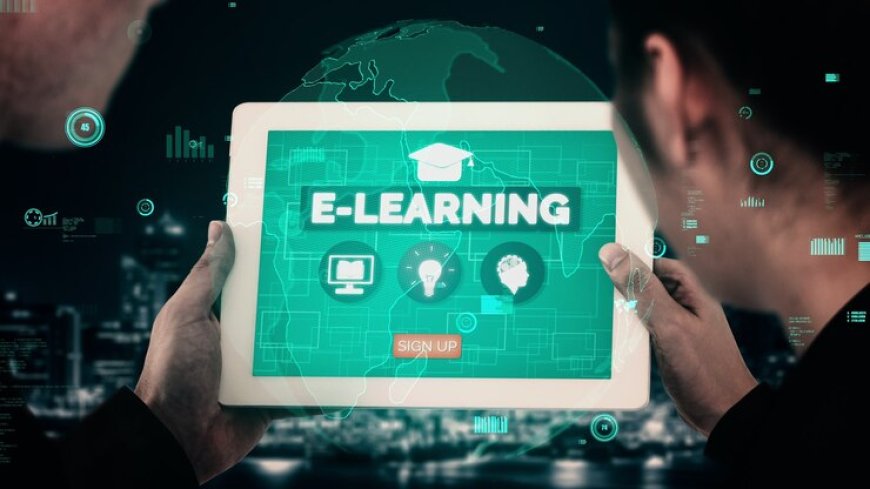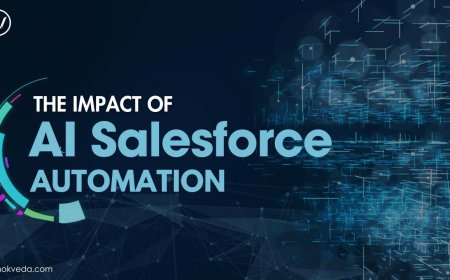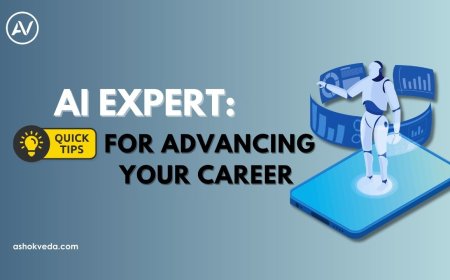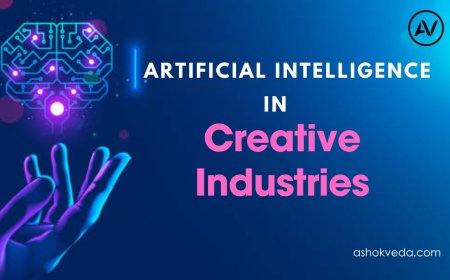Expert AI in the Evolution of E-Learning Platforms
Explore the transformative role of expert AI in enhancing e-learning platforms, enabling personalized, efficient, and engaging educational experiences

With a growing number of e-learning platforms, the educational environment has changed significantly in recent years. Traditional teaching methods are being supplemented and, in many cases, completely replaced by digital alternatives as technology develops. Expert AI is one of the key technologies advancing this change. Expert AI is changing the way we approach education in the age of technology by analyzing huge amounts of data, finding patterns, and making intelligent conclusions. We will look into the relationship between the development of e-learning platforms and Expert AI. We will explore how Expert AI is changing the way that education is delivered, from customized instruction and content supply to evaluation and student participation. We can gain insights into the future of education and what opportunities it brings for students, teachers, and educational institutions by understanding the function of Expert AI in e-learning. Come along with us as we set out to explore the exciting possibilities of Expert AI to impact the direction of e-learning platforms.
Imagine a future in which traditional classroom instruction is no longer the standard. Actually, from the safety of their homes, students of all ages may access a wealth of online materials, courses, and interactive learning platforms. In this case, e-learning platforms are being used by an increasing number of organizations, individuals, and educational institutions to satisfy the demand for flexible and accessible education. Though easy, these platforms frequently face challenges related to flexibility, personalization, and learner engagement. Let me introduce you to Expert AI, an amazing technology that could completely transform e-learning. Education is now more effective, efficient, and interesting than ever because of e-learning systems' ability to use artificial intelligence to deliver adaptable information, provide personalized learning experiences, and provide real-time feedback. Teachers, learners, and companies are all looking for creative ways to improve the standard and accessibility of online learning in this quickly evolving field. expert AI has an opportunity to significantly influence how e-learning systems develop in the future, propel educational advancement, and educate students everywhere.
What are the complications faced by Expert AI and the Evolution of E-Learning Platforms?
Ethical Concerns: Problems with student data handling and security may arise when expert AI is used in e-learning. The AI algorithms raising red flags are said to be biased, giving preference to some student groupings over others. Furthermore, there's a chance that learning will feel less personalized and more like dealing with a computer than a teacher if AI is used excessively. To guarantee that AI is applied ethically and responsibly in e-learning, developers and educators must address these issues.
Integration Challenges: It can be challenging to implement Expert AI into current e-learning platforms since it requires a high level of technical expertise and resources. It might be necessary to update the platform's architecture and modify how it operates. This requires skilled individuals and can be expensive and time-consuming. Given these difficulties, adding Expert AI may improve the platform's function and give consumers better educational opportunities.
User Acceptance: Expert AI in e-learning may not be something that all students and teachers want to adopt since they fear it would replace their employment or limit human interaction. Additionally, they can be doubtful of the AI's ability to make wise choices. Expert AI can improve learning, but some people may not want to utilize it because of these concerns.
Quality Assurance: Detailed testing and verification are required to guarantee that Expert AI functions successfully in education. Providing that AI is precise, dependable, and helpful to both teachers and students is crucial. This involves testing it frequently, making sure everything functions as it should, and monitoring it to address any issues that may develop. We can ensure that Expert AI improves both instructor effectiveness and student learning by taking this action.
Accessibility: Certain individuals may not be able to use Expert AI e-learning systems due to connectivity problems or limitations. They could feel disadvantaged as a result, and they might lose out on educational chances. It's crucial to guarantee that these platforms are freely available for use by everyone, regardless of their situation. We can guarantee that education is open and equal for all by taking this action.
Overreliance on Technology: If students rely too much on Expert AI in their e-learning, they may become less creative and critical thinkers. It might also imply that they participate in less of the crucial student-teacher and peer interaction that learning requires. It is important that, in addition to utilizing AI to support our learning, we continue to communicate with one another and employ our minds. In this manner, we can have a well-rounded educational experience that fosters our multifaceted growth.
What is the impact of Expert AI on the evolution of e-learning platforms?
Personalized Learning: By analyzing each student's data and preferences, expert AI helps e-learning systems create learning experiences that are specifically catered to the needs and learning preferences of each student.
Flexible Content Delivery: By using Expert AI, e-learning platforms may dynamically modify the way content is delivered in response to a student's learning progress, making sure that the content is suitable for their current understanding and learning speed.
Automated Testing: Expert AI helps automate processes for assessment, such as assignment grading, feedback, and improvement identification. This saves teachers time and helps students to receive feedback more quickly.
Improved Student Engagement: E-learning systems can boost student motivation and engagement by using Expert AI algorithms to provide interactive and immersive learning experiences. This will improve learning results.
Data-Driven Insights: With the help of expert AI, e-learning systems can gather huge amounts of data on the behavior and performance of their students. This gives teachers insightful information that they can use to improve learning paths, instructional tactics, and course material.
Effective Content Creation: Teachers can produce interactive simulations, virtual labs, and multimedia presentations more quickly and effectively with the help of expert AI technologies. This increases the overall efficacy of e-learning resources.
Real-Time Support: Skilled chatbots powered by AI and virtual assistants can assist students in real-time by guiding them through difficult ideas, answering questions, and explaining things. This increases availability and promotes learner autonomy.
Continuous Improvement: Expert AI assists e-learning platforms in iterating and improving their offerings, making sure that courses stay relevant, efficient, and engaging over time. Expert AI does this by regularly analyzing learner data and feedback.
The delivery and experience of education could be completely transformed by the introduction of Expert AI into e-learning platforms. Even if there are obstacles to overcome, like ethical questions, integration difficulties, and user acceptability problems, Expert AI has a lot to offer e-learning. expert AI offers a wide range of options to improve the efficiency and accessibility of online education, from customized learning experiences and flexible content distribution to automated evaluation and increased student engagement.To guarantee that Expert AI is used responsibly and ethically in e-learning, developers, educators, and legislators must address the ethical issues raised by this technology. Through initiatives in education and training, efforts should also be made to address integration difficulties and foster user acceptance.





































